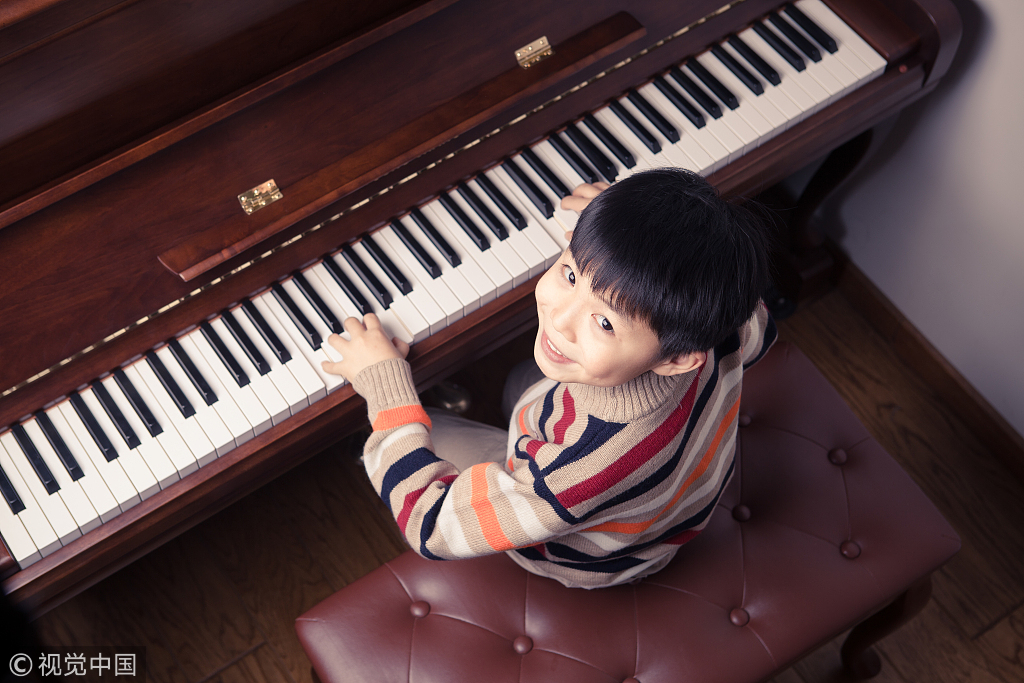WASHINGTON, June 25 (Xinhua) -- Chinese and American scientists suggested piano lessons had a positive effect on kindergartners' ability to distinguish different pitches, which translated into an improvement in discriminating between spoken words.

Photos: VCG
However, the piano lessons did not appear to confer any benefit for overall cognitive ability, as measured by IQ, attention span, and working memory, according to the study published on Monday in the Proceedings of the National Academy of Sciences.
"The children didn't differ in the more broad cognitive measures, but they did show some improvements in word discrimination, particularly for consonants. The piano group showed the best improvement there," said Robert Desimone, director of Massachusetts Institute of Technology's McGovern Institute for Brain Research and the senior author of the paper.
The study, performed in Beijing, suggested that musical training is at least as beneficial in improving language skills, and possibly more beneficial, than offering children extra reading lessons.
Nan Yun, an associate professor at Beijing Normal University, is the lead author of the study.
Previous studies have shown that on average, musicians perform better than non-musicians on tasks such as reading comprehension, distinguishing speech from background noise, and rapid auditory processing.
However, most of these studies have been done by asking people about their past musical training.
The researchers decided to perform a more controlled study in which they could randomly assign children to receive music lessons or not, and then measure the effects.
The 74 children participating in the study were divided into three groups: one that received 45-minute piano lessons three times a week; one that received extra reading instruction for the same period of time; and one that received neither intervention.
All children were four or five years old and spoke Chinese as their native language.
After six months, the researchers tested the children on their ability to discriminate words based on differences in vowels, consonants or tones.
Better word discrimination usually corresponded with better awareness of the sound structure of words, which is a key component of learning to read, according to the study.
It found that children who had piano lessons showed a significant advantage over children in the extra reading group in discriminating between words that differ by one consonant.
Also, children in both the piano group and extra reading group performed better than children who received neither intervention when it came to discriminating words based on vowel differences.
The researchers also used electroencephalography (EEG) to measure brain activity and found that children in the piano group had stronger responses than the other children when they listened to a series of tones of different pitch.
This suggested that a greater sensitivity to pitch differences is what helped the children who took piano lessons to better distinguish different words.
However, in tests of IQ, attention, and working memory, the researchers did not find any significant differences among the three groups of children, suggesting that the piano lessons did not confer any improvement on overall cognitive function.


